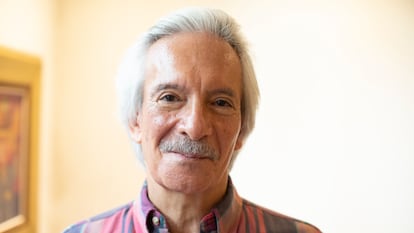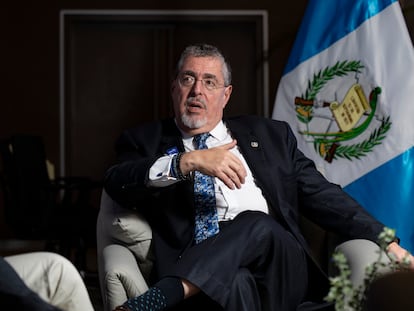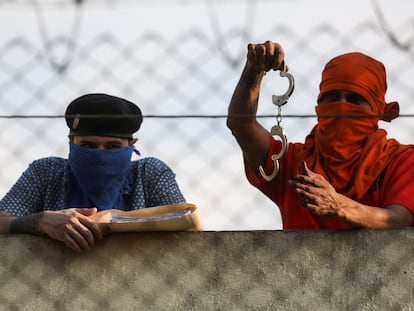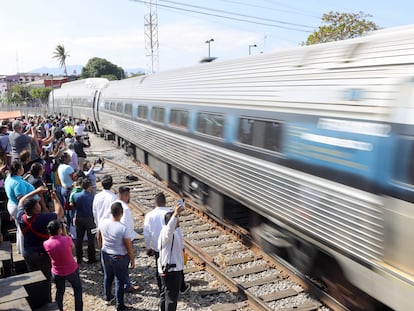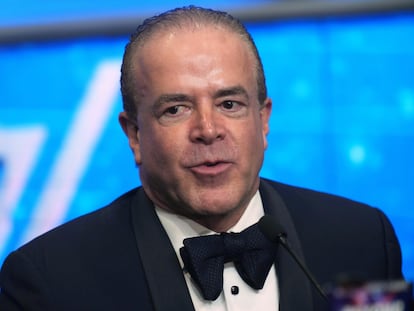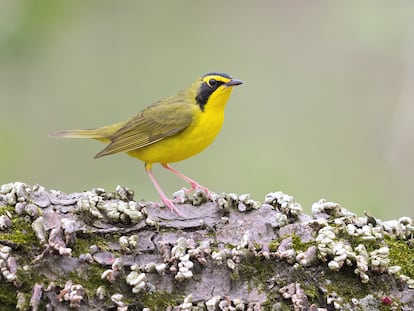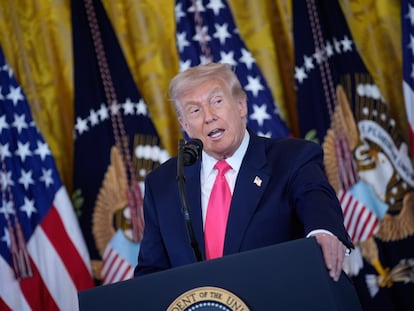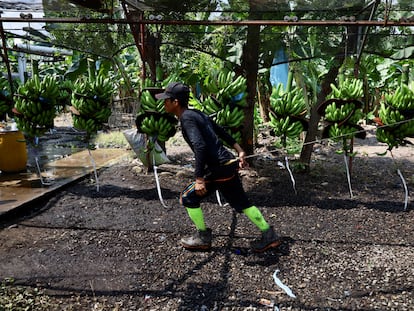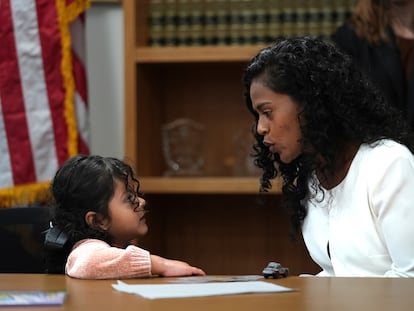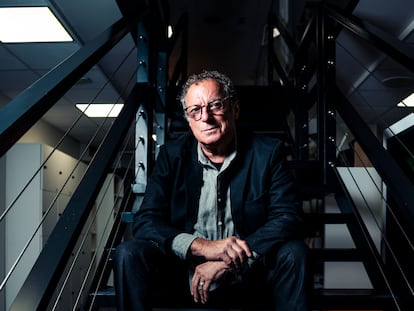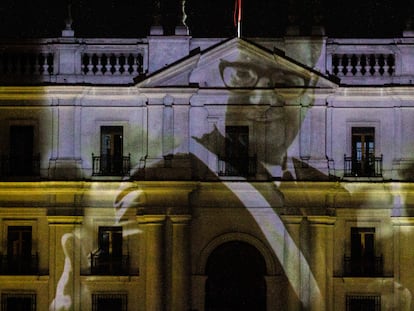Every day, people who have died in the US arrive at La Aurora Airport in a final migratory journey surrounded by scams, injustices, bureaucracy, and the unwavering will of their families
The Brazilian jurist begins his term as president of the Inter-American Court of Human Rights focusing on three key areas: climate action, bringing the court closer to citizens, and expediting measures
In an interview with EL PAÍS, the president of the Central American country reflects on the challenges he faces ahead of a vote he hopes will reshape the judicial ecosystem
The Central American country is under a state of emergency after a massacre of police officers that calls into question the state’s ability to deal with the violence of an army of 30,000 gang members
Los Choneros, the reigning criminal organization in Manabí, Ecuador, is linked to shark hunting and finning, complimentary activities to its primary trade of drug and fuel trafficking
The specialist in Mesoamerican history warns against revisionism: ‘The course of the conquest could have been different without Indigenous support’
The authorities have deployed the army to patrol the streets, but the response has had little impact on the gangs or a judicial system riddled with corruption
A book that compiles the recovery of ancestral recipes from the Americas, from Canada to the Amazon, maps strategies in the face of climate change and agribusiness
For the past 20 years, she has been legal guardian to 2,373 children, whose parents have been deported or are at risk of detention. She currently has 700 minors under her care
Indebted and traumatized by the abuse of human smugglers and mistreatment by US authorities, migrants who returned without hope have managed to start a new life in their country of origin
The deadly derailment of a passenger train in Oaxaca on Sunday has put the spotlight on the least scrutinized of López Obrador’s railway megaprojects
Throughout 2025, the Republican administration cracked down not only on illegal immigration, but also on migrants who were in the country with humanitarian protections or certain types of special visas
This is the latest attempt by Guatemalan scientists to make kids aware that the once-pristine lake is in danger of ‘dying’ from the constant discharge of waste water, garbage and erosion
Thousands of beneficiaries from Colombia, Cuba, Ecuador, El Salvador, Guatemala, Haiti, and Honduras will have to leave the country in the coming weeks
The South American country has become the seventh nation to try to stop the group, which has been charged with sexual abuse and trafficking
The businessman, whose interests include the import and export of hydrocarbons, is wanted by the Attorney General’s Office for a fuel and arms trafficking scheme originating in Guatemala, where he served as honorary consul
Raúl Rocha, the president of the beauty pageant, has in one week gone from being accused of rigging the prize in favor of the Mexican winner to being pursued for leading a criminal network with links within the Mexican Attorney General’s Office
A recent study found that these endangered areas are home to up to 46% of the global populations of 40 species that nest in North America but spend most of the year further south
The veteran diplomat is calling for ‘a new legislative framework’ that provides ‘more freedom’ to combat drug cartels
The US president signs trade agreements with Argentina, El Salvador, Guatemala and Ecuador that ‘will bring prices down very quickly’ according to Treasury Secretary Scott Bessent
The plants that grow these sweet fruits are cultivated with extreme care. But those who pamper them are despised and exploited
A new initiative seeks to have local and state authorities share information with ICE to facilitate the arrest and likely deportation of suspects
The reporter says that US intelligence is at a crisis point, and warns of the risks of the White House’s operation against Nicolás Maduro
The government is overhauling a fly production complex in Chiapas to make it the ‘world’s most modern’ facility of its kind, capable of manufacturing millions of sterile specimens as a chemical-free form of pest control
The agency’s covert operations, which Trump confirmed last week, hark back to the coups, assassination attempts and insurgencies supported or carried out by Washington in the region during the 20th century
The United States, which has designated the gang as a terrorist organization, will support polygraph interrogations to identify those responsible for the jail break
